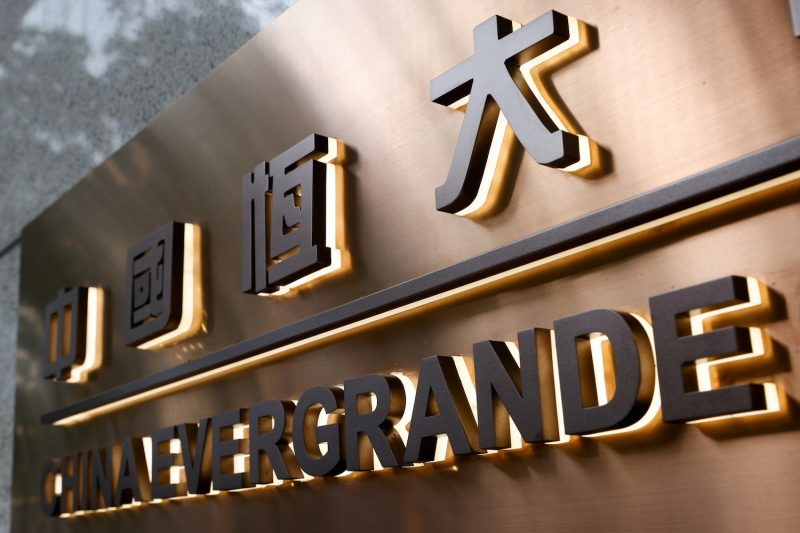Fitch Ratings said on Thursday it had downgraded China Evergrande and its subsidiaries, Hengda Real Estate Group and Tianji Holding, to Restricted Default (RD) status – the first time the property giant has been declared in default.
The rating agency also downgraded Kaisa, a smaller developer, to a Restricted Default rating.
The downgrades came despite Evergrande and Kaisa not officially announcing the defaults that could result in prolonged debt restructuring processes.
In its note on Evergrande, Fitch said the developer did not respond to its request for confirmation on the coupon payments worth $82.5 million that were due last month with the 30-day grace period ending this week.
“We are therefore assuming they were not paid,” it said.
Evergrande, which has about $300 billion in liabilities, missed a deadline on debt payment on Monday, but hopes of a managed debt restructuring have calmed fears of a messy corporate collapse.
Fitch said its downgrade of Evergrande reflects the non-payment of coupons due on November 6 for Tianji’s $645 million 13% bonds and $590 million 13.75% bonds after the grace period lapsed on Monday December 6.
Fitch defines a restricted default as indicating an issuer has experienced a default or a distressed debt exchange, but has not begun winding-up processes such as bankruptcy filings and remains in operation.
The non-payment has triggered an “event of default” on Evergrande’s bonds and its other US dollar notes will become due immediately and payable if the bond trustee or holders of at least 25% in aggregate amount declare so, Fitch said.
The same is true for Kaisa, which, according to Refinitiv data, has note maturities totalling $2.8 billion next year, and $2.2-3.2 billion maturities each year between 2023-2025.
Creditors Will Be Respected: PBOC Chief
China’s central bank governor assured on Thursday that the rights of shareholders and creditors of the cash-strapped Evergrande Group would be “fully respected” based on their legal seniorities.
The People’s Bank of China chief also told a financial forum in Hong Kong that the risk caused by a few Chinese real estate companies in the short term would not undermine the capital market in the Asian financial hub.
Evergrande said on Monday it had established a seven-member risk-management committee – with just two representatives from the company, including founder Hui Ka Yan, and five officials from state entities – to assist in “mitigating and eliminating the future risks.”
The provincial government of Guangdong said it would send a team to Evergrande at the developer’s request. Analysts said that signalled Evergrande would begin managed debt-asset restructuring.
The state officials are expected to prioritise social stability, which analysts have said is likely to mean that homebuyers, suppliers and employees will be favoured ahead of international investors, once debt restructuring gets underway.
Shares in Evergrande rose 4% in Thursday afternoon trading. The stock hit a record low on Wednesday after a missed debt payment deadline put the developer at risk of becoming the country’s biggest defaulter,
An index tracking mainland property developers rose 2.34%, taking its gains for the week to more than 6.2%.
Kaisa ‘Already Restructuring’
Fitch said there was limited information available on Kaisa’s restructuring plan after it missed $400 million in offshore bonds repayment on Tuesday.
Kaisa Group is said to have started work on restructuring its offshore debt worth $12 billion, a source with direct knowledge of the matter said on Thursday.
Kaisa is expected to soon sign a non-disclosure agreement (NDA) with Lazard, the adviser of a group of bondholders, the source and another person told Reuters. The bondholders hold over 25% of Kaisa’s $12 billion offshore bonds.
The NDA will lay the groundwork for further discussion on forbearance and financing solutions.
Formal discussions on forbearance and financing plan could commence once the NDA is in place, the people said, who declined to be named as the talks are confidential.
But an agreement is unlikely in the next few weeks as the talks are still at an early stage, the first source said.
Kaisa said it was open to talks on forbearance, but declined to comment on rest of the details. Lazard declined to comment.
The group of Kaisa offshore bondholders, who say they own 50% of the notes that were due on Dec. 7, sent the company draft terms of forbearance late on Monday.
The group previously offered $2 billion in fresh debt to help Kaisa repay its onshore and offshore debts, sources have said. Other financing ideas are also on the table.
Kaisa is also in talks with another bondholder group, the first person said.
Kaisa’s default came after it failed last week to secure the minimum 95% approval needed from offshore bondholders to exchange the bonds that were due Dec. 7 for new notes due June 6, 2023 at the same interest rate.
Trading in Kaisa’s shares, which have lost 75% this year, was suspended on Wednesday. Evergrande’s stock has plunged 88% this year amid the debt crisis that has fuelled worries about a broader contagion and prompted officials to offer assurances that a fallout can be contained.
- Reuters, with George Russell, Jim Pollard
This report was updated with new information on December 9.
SEE MORE:
Hong Kong to Investigate Gifts to Officials Sent by Evergrande
China Evergrande Shares Hit New Low as Kaisa Misses Payment
What’s Next For China Evergrande As Bond Default Looms?
























